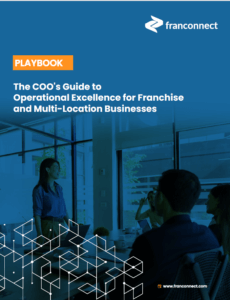In today’s fast-moving business landscape, corporate-owned multi-location brands are under constant pressure to operate more efficiently, maintain high standards across all units, and scale with consistency. One of the most effective ways to meet these goals is through unified business systems—a strategy that unifies data, streamlines operations, and drives smarter decision-making at every level.
The Risks of Disconnected Data
Corporate-owned operations often involve multiple departments, regions, and systems—each generating its own data. Without integration, this leads to:
- Inefficient Processes: Teams waste time pulling data from different sources, delaying responses, and slowing execution.
- Inconsistent Reporting: Siloed systems often produce conflicting or outdated information.
- Limited Visibility: When visibility is fragmented, leadership is left guessing where issues lie—and opportunities for improvement go unnoticed.
- Higher Risk Exposure: Missed compliance issues and delayed responses can escalate into costly operational failures and reputational damage.
Why Unification Matters for Corporate-Owned Businesses
Connecting your systems into a unified operational ecosystem leads to measurable benefits:
- Operational Agility: Integrated workflows reduce manual work, enabling field and HQ teams to focus on high-impact tasks.
- Reliable, Real-Time Data: Unified systems ensure data accuracy across departments and locations—no more working from multiple versions of the truth.
- Faster, Smarter Decisions: Real-time access to performance data allows leaders to pivot quickly and act with confidence.
- Scalable Efficiency: Integrated tools eliminate tech sprawl and reduce IT overhead, creating a leaner, more sustainable tech stack.
How Optik IQ Powers Compliance at Scale
Optik IQ enables:
- Unified Visibility: Get a centralized view of compliance, audit results, corrective actions, and frontline execution across all locations.
- Automated Issue Resolution: Assign and track corrective actions with built-in verification steps—so nothing falls through the cracks.
- Role-Specific Retraining: Automatically trigger targeted training when repeat violations are detected, reducing risk and improving performance.
- Data-Driven Coaching: Identify trends, high-risk areas, and coaching opportunities in real time—before small issues become big problems.
Real-World Impact for Corporate Teams
Imagine a corporate-owned QSR brand managing 200+ locations. Without integrated systems, their audit and issue tracking is slow, fragmented, and reactive.
By implementing Optik IQ:
- Issues are automatically tracked from detection to resolution
- Compliance data is available in real time at both the regional and executive level
- Repeat violations drop thanks to auto-triggered retraining modules
In another example, a corporate-owned retail chain uses Optik IQ to unify store operations, field audits, and incident reporting into a single platform. With everything in one place, they’ve streamlined field support, sped up execution, and boosted compliance scores across the entire organization.
Conclusion: Scaling Smart Starts with Unified Operations
If you’re running a corporate-owned business, having unified operations isn’t just a nice bonus—it’s essential. When teams, tools, and data aren’t connected, things slow down, decisions get delayed, and small issues can quickly turn into bigger problems.
With tools like Optik IQ, you can bring all your data together, automate the stuff that slows your team down, and help every part of the business run smoother. As your brand grows, having connected systems isn’t just helpful—it’s what sets you up to scale without the chaos.










 Ian Walsh
Ian Walsh








